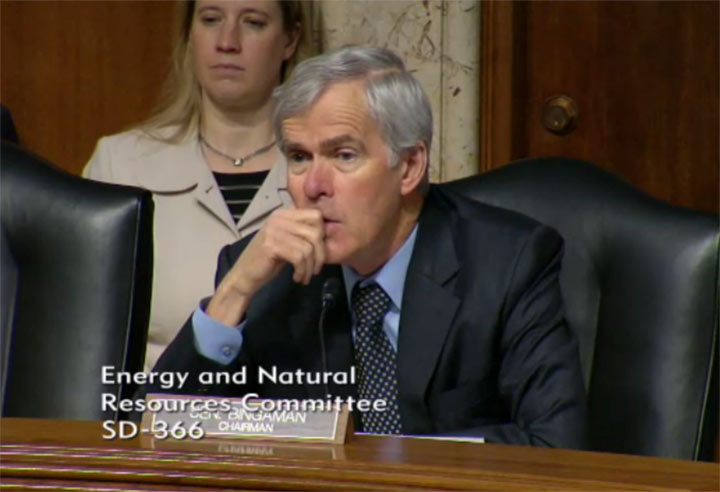Climate change is an issue that is most commonly known for its increasing global temperatures, but other possibly more detrimental side effects such as rising sea levels, an increase in droughts and heatwaves, and stronger hurricanes are just as possible. Rising sea levels in particular is a concerning issue because of how much of the population lives on or near the coast. About 40% of the world’s population lives within 100 kilometers of the coast, and about 30% of the U.S. population lives in coastline counties.*
Yet again though, like with a lot of political issues, the argument does not reside within the actual intricacies of the problem itself, but whether or not the problem is worth worrying about right now. Democrats believe that rising sea levels is a serious issue that we should address as soon as possible, whereas Republicans believe that there are other more important issues worth worrying about.

The almost unanimous decision amongst climate scientists is that climate change is an issue that needed addressing years ago. With rising sea levels, on the other hand, it is a problem with many solutions that all have completely different timeframes. For example, a solution such as vacating the entire coastal population would obviously be the best in terms of being the safest, but would most likely require decades of planning and decades of enacting the evacuation. A solution such as making a city flood-proof seems much more feasible and realistic but would have its own problems.
A few years ago, a hearing from the Senate Energy and Natural Resources Committee was held to discuss the future of rising sea levels, the severity of it, and how to deal with it.*** Chairman Bingaman had hoped that the hearing would incite a new national conversation about climate change and the problems associated with it, but he said that instead it only highlighted the partisan divide on the issue. The hearing had 5 Democrats in attendance and just 1 Republican in attendance showing the priorities of each party. Climate Central’s Ben Strauss believes that coastal counties are already dealing with the effects of rising sea levels and that the federal government should “support adaptation and mitigation efforts.”***

Not only is the coast home to around 30% of the U.S.’s population, but it is also home to over 300 energy facilities that remain less than 4 feet above sea level and over 100 nuclear power plants. Flooding would be disastrous to the U.S.’s sources of energy.
Although the U.S. in the past few years has managed to come together in agreement on the harsh reality of climate change, proposing actual solutions to the effects of climate change is another thing. Similar to most of the problems in our country, legislation tends to get held up in the process due to this partisan divide.
Understandably, Republicans would be opposed to a coastal evacuation because of its exuberant cost and insane timeframe. A solution that both parties would be more likely to agree on would be making coastal counties and cities flood-proof. For example, in Jacksonville, their current infrastructure is not designed to withstand a four-foot flood, which is extremely likely to happen within the next 20 years.
The most important thing that happens within the coming years, though, is that the U.S. government comes to a consensus on the proper legislation to pass. Too much time is spent by each party attempting to get solely what they want. Climate change and its catastrophic effects aren’t waiting for anyone.













 The Strokes have probably capitalized the most on the indie rock boom at the beginning of the 2000s. Their debut album Is This It, has reached high status and songs like “Someday” and “Last Nite” are still played on the radio today. The New York group released their record in the U.S. during the aftermath of 9/11 and now their sound is a reminiscence of the despair and lost hope that the people of New York recently attained despite their general uplifting and hopeful sound. The Strokes were the band for the underdog. Almost no one thought that an indie rock group would go gold in 2000 and went it did, the teenagers and young kids of that era felt as if they had someone to represent them.
The Strokes have probably capitalized the most on the indie rock boom at the beginning of the 2000s. Their debut album Is This It, has reached high status and songs like “Someday” and “Last Nite” are still played on the radio today. The New York group released their record in the U.S. during the aftermath of 9/11 and now their sound is a reminiscence of the despair and lost hope that the people of New York recently attained despite their general uplifting and hopeful sound. The Strokes were the band for the underdog. Almost no one thought that an indie rock group would go gold in 2000 and went it did, the teenagers and young kids of that era felt as if they had someone to represent them.
